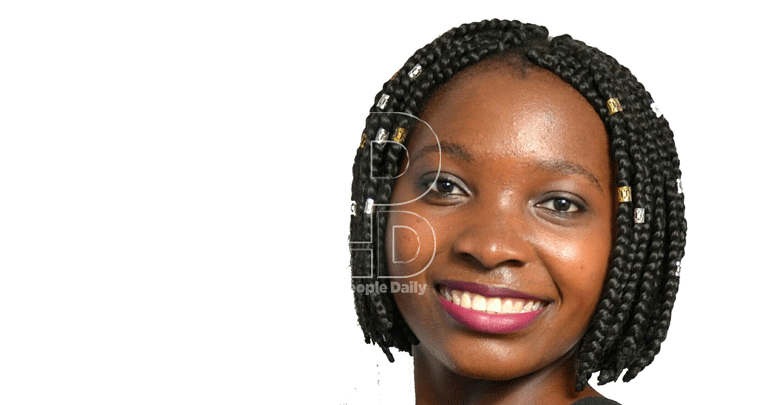My hearing problem birthed my company
By Manuel Ntoyai, April 29, 2021@Manuel_Ntoyai
Josephine Adeti was in Class Six in Kilimo Primary School in Kilifi county when one of her teachers discovered she had a hearing problem that affected her class performance.
“I was diagnosed with moderate to severe hearing problem,” she starts. At that time, her parents could not afford a hearing aid until she joined Kenya High School for her secondary education and got the support she needed.
In 2014, she joined university for Bachelor of Science Degree in Telecommunications and Information Engineering.
“I was a student at Jomo Kenyatta University of Agriculture and Technology (JKUAT), Juja campus. And compared to other universities, JKUAT classes do not have voice amplification systems, so I struggled with learning.
Some teachers were audible, but for others, when you asked them to repeat what they said or speak louder, they would dismiss you. Most time, I found myself using YouTube videos to study,” she says.
While on YouTube, she had a lightbulb moment: the concept of creating inclusive educational videos and audios.
She did not need any money to start off and since she had a laptop, access to university Wi-Fi and access to open source software, it was a smooth start.
“I started doing it as a hobby when there was nothing much to do in university due to lecturers’ strikes.
I began training myself on how to create animations for fun. In 2019, there was a call for the Governors Startup Challenge (GSC) and I applied for it,” says Josephine.
Balancing act
GSC is a flagship programme of Youth Empowerment Programme Initiative, which brings together 10 best and brightest entrepreneurs, aged 18-35 from across the coast region of Kenya to compete and design new solutions to community challenges.
“My application was successful and from the programme, I learnt more on animation and how I could monetise it, while maintaining the core value of inclusivity.
I began my business, which I named Awesome Scribers, with advertising videos and then slowly ventured into educational content for learners between the ages three and eight, including the hearing and speech impaired.
So far, I have partnered with Mimi Ni Nani, a Tanzania-based organisation and Holby Education Investment,” she says.
For many young people, venturing into business requires a leap of faith and for her, it was not different.
“When I was accepted for GSC, I hesitated because people taking part in the challenge were already established business names, yet for me, it was a hobby.
We were trained on business development, how to acquire customers and all that which entails making a successful business, the one-week incubation programme also had a pitching competition and I emerged the third best, which boosted my morale,” she says.
She adds, “When I started out, I made a couple of hundred shillings from each job, but now my rates are around Sh2,000 per minute and people are paying.”
One by one, her clients started posting her animation videos on their social media accounts and that’s how she started getting more jobs from the referrals.
Balancing her engineering studies and business has been a challenge, as both require highly engaging concentration.
“I constantly have to balance many things at once and squeeze my social life. What I have learnt in this journey is that it is okay to fail. I have also learnt how to prioritise and stay focused.
Most importantly, I have learnt how to ask for help. Whatever problem I am facing, someone else somewhere has already figured out the solution. I just need to ask.
And that the most important thing I can gift myself is being self-aware then finding and sticking with my tribe. Things are easier that way,” she adds.
Global awards
Fortunately, now she can delegate some duties to her two colleagues, a voiceover artist and a writer.
“I am happy I won the money because part of it will go into training them so that they can give more input into the business,” says the recent graduate.
Her dream career was journalism and when she got into campus, she thought she could still pursue it as she studied for her degree progrramme. Consequently, she undertook a number of online internships and trainings including UN Women Champions for Change and as a writer on Opportunity Desk, a platform curating training, awards and scholarship programmes for youth across the continent.
“That’s where I got to know about Entrepreneurs Organisation, and later found out about the Kenyan chapter, which advertised on Facebook about the Global Student Entrepreneur Awards (GSEA) Kenya 2020. I applied for it and emerged the winner,” she states.
GSEA provides student entrepreneurs with networks, global platform and transformational support, with students from 39 countries competing for the winning place and prize money.
Josephine won the local chapter competition which saw her walk home with Sh100,000, while representing the country on the international platform.
The GSEA global finals will take place next month. Josephine plans to use the award money to increase employees in her company, which she wants to be a leader in inclusive content.
“My plan is to bring more inclusive digital content on tables of advertising as well as in educational institutions, this include digital content, especially in the form of videos that can be read and understood by all types of people including those who have hearing loss or those who are blind.
Right now, we are already in the digital advertising space and are looking to getting into the educational space.
We started with the digital advertising because it is more sustainable, and we are hanging on it as we look for ways of sustaining our activities in the educational space,” she explains.
